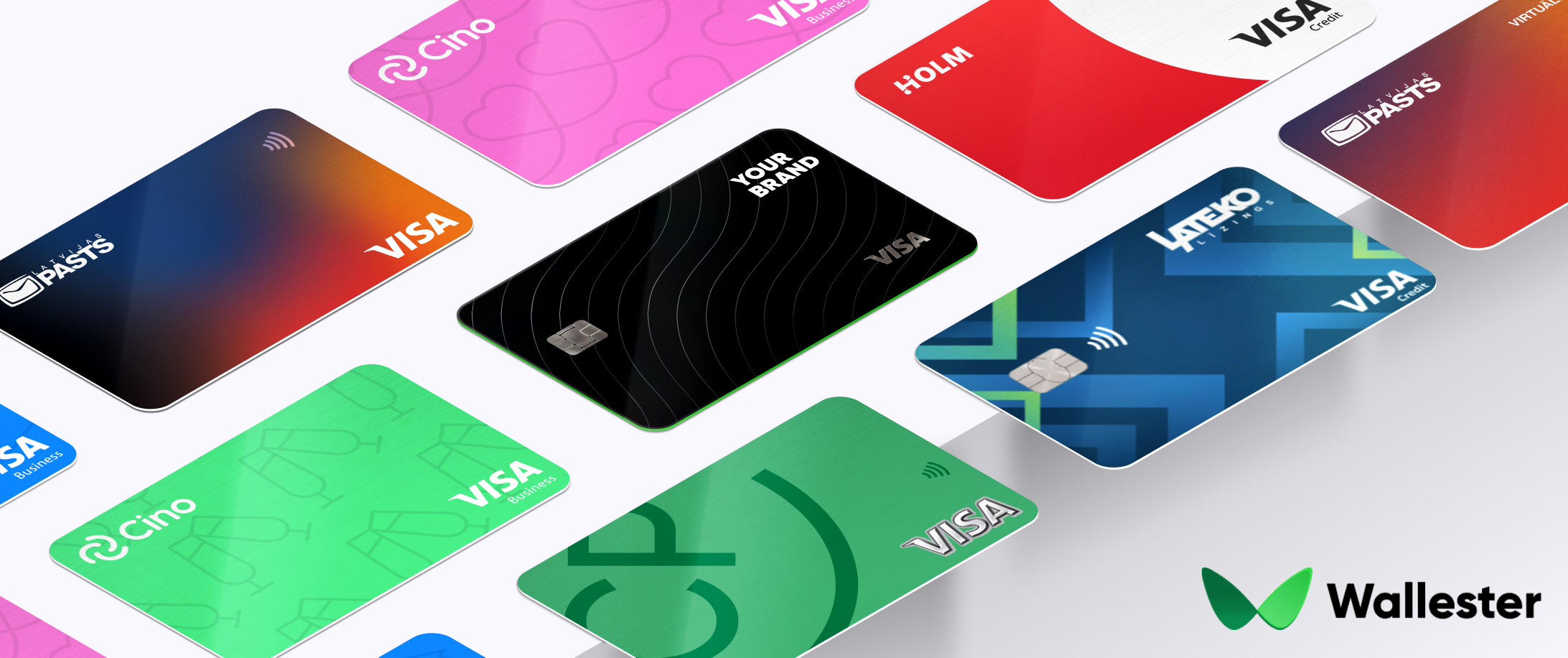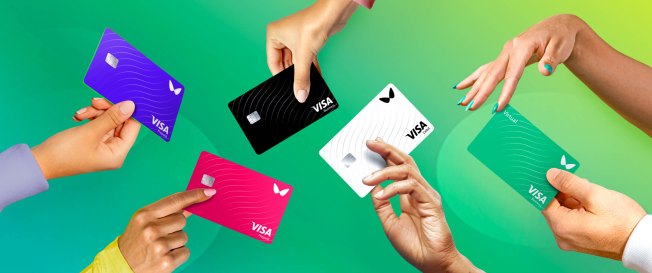Since Gen Z today gravitates more toward using digital payment systems, co-branded credit cards have become a significant payment tool. A co-branded credit card entails logos of two different partnering companies to offer added advantages to the users. In addition to retailers and banks, many non-profit firms have joined various credit card issuers.
Using a branded credit card offers you the dual benefits of a store and a reward. The function of the credit card is similar to the hybrid co-branded credit cards. Unlike traditional credit cards, co-branded credit cards offer multiple rewards or bonus points and discounts you can use in your purchases by any service or retailer or even in online shopping.
Let’s delve into the discussion to learn more about co-branded credit cards.
What are Co-Branded Credit Cards?
Co-branded credit cards, with their many rewards points, several benefits, and huge card networks, have become popular among purchasers. The branded credit card caters to the consumers’ specific needs, financial situations, and preferences.
Mainly, a credit card company issues these cards in partnership with a specific brand or organization, such as airlines, hotels, retailers, or sports teams. Using co-branded credit cards allows consumers to save money, earn perks, and build credit.
However, you must compare options and choose a card that aligns with your spending habits and lifestyle to maximize the benefits. Depending on the financial institution you choose for your co-branded credit card, the rewards can come in the form of points, miles, cashback, or discounts that can be redeemed for various goods and services.
For example, an airline-branded credit card might offer bonus miles for every dollar spent on airfare or provide cardholders with free checked bags and priority boarding. A retail-branded credit card may offer cashback rewards or exclusive discounts on purchases made at that particular store.
How Does a Co-Branded Credit Card Work?
As mentioned above, a credit card issuer jointly offers a co-branded credit card and a partner organization, such as retailers or major airlines. By combining the features and benefits of both partners, these cards give cardholders a range of perks and rewards tailored to their specific preferences.
When you apply for a co-branded credit card, you are typically asked to provide personal and financial information, such as your name, address, income, and credit score. The credit card issuer will then evaluate your application based on their creditworthiness criteria, including your credit history, income, and debt-to-income ratio.
If you are approved for the card, you will receive a credit limit, the maximum amount of credit you can use. You can then use the card to purchase at the partner organization and any other merchant partners that accept the card’s payment network, such as Visa Card or MasterCard.
It’s important to note that co-branded credit cards may also come with annual fees and interest rates, so it’s important to read the terms and conditions carefully before applying. However, if used responsibly, co-branded credit cards can be a great way to earn rewards, merchandise discounts, and benefits while building your credit history.
Benefits of Co-Branded Credit Cards
There are numerous benefits of co-branded credit cards loyal customers can avail of. However, they also come with certain drawbacks that should be considered before applying.
Here are some of the pros and cons of co-branded credit cards you should keep in mind.
Pros
· Personalized Rewards
Co-branded credit cards offer benefits specific to the partner organization jointly associated with the credit card company. For instance, a clothing-branded credit card may offer cardholders discounts on its new collection. A store credit card may offer cashback rewards or exclusive discounts on purchases made at that particular store.
· Improved Customer Loyalty
Co-branded credit cards can increase loyalty and encourage consumers to spend more with the partner organization by offering rewards and benefits.
· Additional Perks
Co-branded credit cards often come with better perks for customers. These may include anything from extended warranties and travel insurance to fraud protection. Some cards even provide access to exclusive events, lounges, and experiences unavailable to the general public.
· Good Credit
Using your co-branded credit card responsibly and making timely payments can build a good credit history. That allows you to qualify for better loans and credit cards in future.
Cons
· Higher Annual Fees
Co-branded credit cards may have higher fees, such as annual or foreign transaction fees. These fees can offset the value of rewards earned, especially for consumers who spend little with the partner organization.
· Limited Rewards
Choosing a specific Co-branded credit card may mean rewards and benefits only applicable to the partner organization. This may not be suitable for consumers who prefer a more diverse range of rewards.
· Higher Interest Rates
Some co-branded credit cards have higher interest rates, leading to higher debt if you carry award options or a balance.
· Limited Acceptance
All merchants may not accept co-branded credit cards, often tied to a specific payment network. This may require consumers to carry multiple credit cards to ensure they have an accepted card at all locations.
Examples of Co-Branded Cards

You can acquire a co-branded card from a variety of organizations and merchant partners, including hotels, retailers, and major airlines. If you’re considering getting co-branded cards, you can choose these options.
- Amazon Prime Rewards Visa Signature Card: Chase and Amazon offer this co-branded credit card. It offers 5% cashback on all Amazon and Whole Foods purchases and other rewards and benefits for Prime members.
- Delta SkyMiles® American Express Card: American Express and Delta Air Lines offer this co-branded credit cards. It offers bonus miles for every dollar spent on Delta purchases, free checked bags, priority boarding, and other travel benefits.
- Target RedCard: This co-branded credit card is from Target and TD Bank. You get 5% off all Target purchases, free shipping, and other perks for Target shoppers.
- Marriott Bonvoy Boundless Credit Card: This co-branded credit card is offered by Chase and Marriott. It offers bonus points for every dollar spent on Marriott purchases and free hotel nights, elite status, and other travel benefits.
- Uber Credit Card: Barclays and Uber offer this co-branded credit card that includes cashback rewards on all purchases, discounts on Uber rides and other benefits for Uber users.
These are just a few examples of the many co-branded credit cards available to consumers. When choosing a co-branded credit card, consider your spending habits, loyalty to the merchant partner, and the rewards points and benefits the card offers.
Should You Get a Co-Branded Credit Card?
Remember that getting a co-branded credit card depends on your financial goals and spending habits. Co-branded credit cards can be a good option if you’re a loyal customer of the partner organization and can take advantage of the rewards the card issuer offers.
Before applying for a co-branded credit card, consider the following factors.
Spending Habits
Look at your spending habits and determine if you will be able to take advantage of the rewards offered by the card. For example, if you fly infrequently, there may be better options than an airline-branded credit card.
Redemption Options
Look at the redemption options for the rewards offered by the card. Make sure that the redemption options are flexible and suit your needs.
Interest Rates
Co-branded credit cards may have higher interest rates than other credit cards. If you plan to carry a balance, there may be better options than a co-branded credit card.
Annual Fees
Co-branded credit cards may have annual fees. Consider whether the rewards and benefits offered by the card are worth the cost of the annual fee.
Partner Organization Loyalty
Consider your loyalty to the partner organization. If you’re a frequent customer of the partner organization, you may be able to maximize the rewards and benefits the card offers.
How to Get a Co-Branded Credit Card
Qualifying for a co-branded card is a relatively simple process. All you need is to follow the steps to get your co-branded card.
Research Your Available Options
Begin by researching your options for co-branded cards from the merchant partner you’re interested in. Look at each card’s rewards, benefits, annual fees, and interest rates to determine the best fit for your needs.
Check Your Credit Score
A co-branded credit card typically requires a good to excellent credit score for approval. Check your credit score before applying to make sure you meet the requirements.
Apply for the Card
Once you’ve decided on a co-branded credit card, you can apply for the card either online or by mail. You will receive an application requiring your personal and financial information, such as your name, income, home address and employment status. You need to answer each question honestly about your money balance and credit score.
Wait For Approval
After submitting your application, the credit card issuer will review your application and credit score to determine whether to approve or deny your application. This process usually takes a few days.
Activate Your Card
If your application is approved, you will receive your co-branded credit card via the mail. Make sure you activate the card before you can use it.
Start Using the Card
Once your card is activated, you can use it to purchase and earn rewards.
Bottom Line
Co-branded credit cards are, without a doubt, a good option for consumers who are loyal customers of a partner organization and want to earn benefits for their purchases. The cards come with multiple perks specific to the merchant partners, such as airline miles, hotel points, and store discounts. But they may have annual fees and higher interest rates.
Thus, you need to weigh the costs and benefits before applying. Cobranded credit cards can be a great way to benefit from discounts for your purchases, but it’s important to make an informed decision that fits your financial goals and lifestyle. Consider signing up for Wallester‘s customized co-branded credit card to help your business make a profit.
FAQs
How do I get a credit card with my company name on it?
To get a credit card with your company name on it, you can consider getting a business credit card. This involves registering your business, building your business credit, researching business credit card options, applying for the card, waiting for approval, and activating the card.
How is Wallester involved in the co-branded card program?
Wallester offers businesses payment solutions and financial services, including co-branded credit card programs.
Wallester helps businesses create customized co-branded credit cards that offer rewards and benefits to their customers. It also provides technology and support to manage and optimize the program. Wallester’s co-branded credit card programs can help businesses increase customer loyalty, drive sales, and generate revenue.
Is my business large enough for a Wallester co-branded card program?
Wallester works with a range of businesses, from small and medium-sized enterprises to large corporations. If you’re interested in a co-branded credit card program with Wallester, you can reach out to them and discuss your business needs and goals. They can provide information on the program and the requirements to participate.
If your business has an established customer base, a strong brand identity, and a clear value proposition, it can benefit from a co-branded credit card program. The program can help your businesses build customer loyalty, increase sales, and generate revenue.


